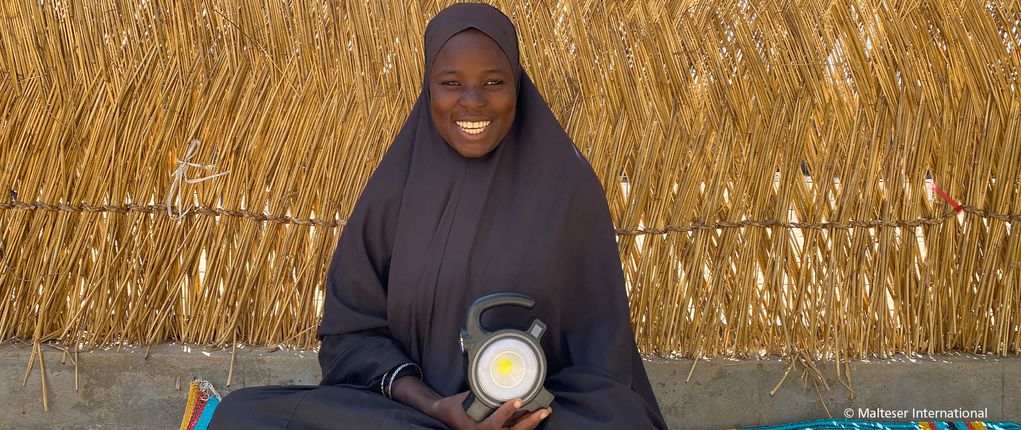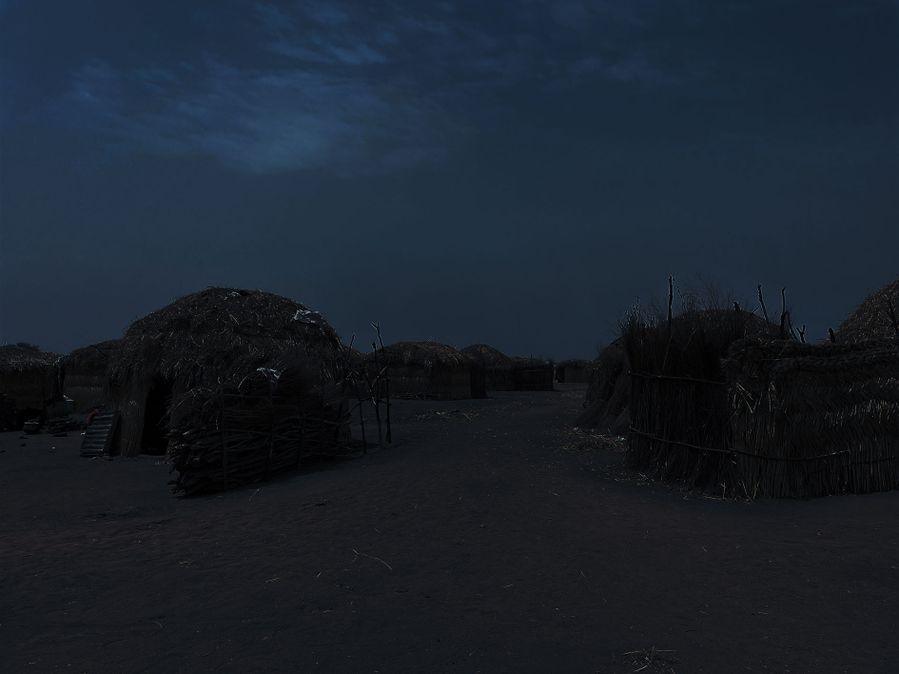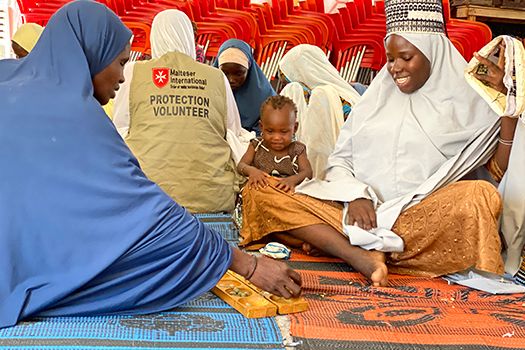
Companion in the dark

The nights in the camps for displaced people in Mashamari, in north-east Nigeria, are dark. Very dark. Because there is no street lighting, no shops that are lit up at night, and generally there is only electricity in a few buildings. The nearest big city is 34 kilometres away. There is also no light, electricity or running water in the shelters. Life for the people in the camps is dangerous, as Islamist groups are still terrorising the population outside. They are also the reason why two million people in north-east Nigeria have had to leave their villages and live in camps as displaced persons. The camp is guarded by the Nigerian army, but life for women and girls is still dangerous as they are repeatedly subjected to violent attacks by men. Even going to the toilet at night is dangerous, as the shelters have no toilets and so women and girls have to walk to the public latrines in the dark at night. Without light, this is very dangerous.
That's why the solar-powered torch that Fanna (name changed) received from the staff in the safe space is so important. "The torch is priceless to me," says Fanna. Because one night her house was burgled and she had no light at hand and couldn't identify the burglar. She felt completely defenceless in the pitch black of her shelter. Now she always has a torch next to her sleeping mat and takes it with her when she has to go to the latrine in the dark.
On the run again and again

Fanna is only 25 years old, but she has already experienced a lot in her life. Ten years ago, her village was attacked by Islamist terrorists. She fled with her family, but they were not safe in the new village either. After a year and a half, they had to leave because of the terrorists. They were only able to save their lives; the family had to leave all their belongings behind. Fanna has lived in Mashamari ever since, together with her three children and her father. She separated from her husband some time ago. Her mother recently passed away and her father has mental health problems. "Now all the responsibility rests on my shoulders and we are struggling to cope with the difficulties and rising prices," says Fanna.
The ‘safe space’ for women and girls that we run in Mashamari is a protected space. Men are not allowed to enter. Here, the women and girls have the opportunity to turn to social workers if they have problems with their family or neighbourhood. The staff also show them how they can earn money for their families. With a little help, the women learn, for example, how to make pasta dough that they can sell. Fanna has learnt how to make traditional men's capshere. "Thanks to Malteser International, I was able to take part in a skill acquisition training programme for cap knitting. I now employ people myself to help me with the first steps of knitting while I carry out the final steps. It takes three weeks to finish a hat. I use the proceeds to buy the material for the next cap and use the rest of the money to provide my household with food and toiletries," says Fanna.
By learning a skill Fanna has now found a way to feed herself, her three children and her father. And at night, the torch still makes her feel safer. Sometimes it's the little things that have a special value and can make people's lives better and safer.
(November 2024)








